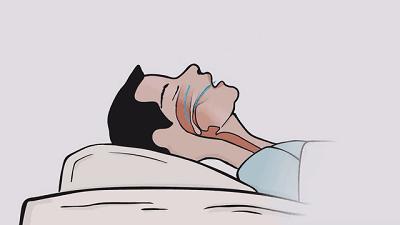The Effects of Sleep Deprivation on Your Health

The impact of sleep deprivation on health is significant, and it can induce various dangerous health issues. In the process of dealing with sleep apnea, understanding the basic knowledge of sleep deprivation and how to cope with it effectively is crucial.
According to a survey by the Global Sleep Research Center, 42 percent of Americans report occasionally struggling with insomnia, “while 18 percent say they have trouble falling asleep every night or almost every night.”
“The Los Angeles Times reported that health institutions such as the National Institutes of Health, the American Psychological Association, and the Mayo Clinic have been reminding Americans of the problem of insufficient sleep for years, pointing out that this condition will increase health risks, cause traffic accidents, lead to workplace accidents, and reduce work efficiency.”
These “increased health risks” usually include susceptibility to heart disease and cancer – very serious issues that we will delve into in the next blog about long-term sleep deprivation.
Apart from these serious diseases, what are the short-term effects of sleep deprivation?
Accidents caused by drowsiness. This seems obvious, but we often don’t think about the consequences that a night of sleeplessness may bring to our lives. The Centers for Disease Control and Prevention, the official public health agency of the United States, points out that the effects of sleep deprivation are often related to motor vehicle accidents and occupational errors such as manufacturing mistakes.
Reckless behavior. One of the worst side effects of sleep deprivation is that lack of sleep can make people feel a sense of pleasure, which may prompt us to make hasty decisions that are not in our own interests. A night without sleep can stimulate the neural circuits that control pleasure, while inhibiting the parts of the brain responsible for reasoning and careful decision-making. The result? “You may be overly optimistic and keen on taking risks,” wrote Jason Miller of The Washington Post in an analysis of the effects of sleep deprivation.
Memory loss. We will explore the long-term effects of sleep deprivation on the brain more comprehensively in subsequent articles, but even short-term sleep deprivation can affect important brain functions such as memory. Ironically, the short-term sleep deprivation often experienced by students may do more harm than good. Miller wrote that when you stay up all night reviewing, “it’s hard to remember the knowledge gained from last-minute cramming because memory consolidation occurs during deep sleep.”
Diet, appetite and obesity. Even short-term sleep deprivation can affect appetite, making you crave foods you would usually avoid and eat more than you know is appropriate. A recent study (non-conclusive) published in the journal Sleep Medicine Reviews suggests that missing sleep leads to increased food intake at dinner. Moreover, even after a hearty dinner, “sleep-deprived subjects still chose larger portions of snacks.”
These facts about sleep deprivation may be worrying, but if you are deliberately staying up late – for studying, working overtime, or any other reason – then you should understand the impact of sleep deprivation on your health and lifestyle. If this is not enough to attract your attention, in our next blog, we will explore the more serious effects of long-term sleep deprivation.
This blog post contains general information about medical conditions and potential treatments. It is not medical advice. If you have any medical questions, please consult your doctor.